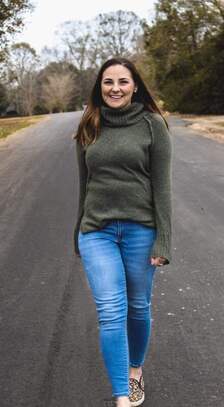|
Life was normal for Brandee. She lived near the coast and enjoyed water sports, softball, and dance. When she was 10 years old, her brother died of a platelet disorder, idiopathic thrombocytopenic purpura. Two years later, she experienced her first menstrual cycle which lasted more than 30 days. After a year of tests, she was diagnosed with von Willebrand’s disease. Brandee had always bruised easily, but no one thought much about it. “I got put on the back burner because my family was always dealing with my brother’s issues. I wasn’t constantly in my mom’s care long enough for her to see if something was wrong.”
After losing a son to a bleeding disorder, Brandee’s mom was most fearful of her diagnosis and worried about losing her daughter. “She kept me very close.” Brandee’s reaction was quite different. Being a teenager, initially, her diagnosis seemed insignificant. “You’re young and you don’t really care.” That attitude soon changed. Her bleeds were very difficult to control and she had to be infused so frequently that she would often go to school with an IV in her arm, which she tried to cover with clothes. Eventually, it became obvious that her disorder would be much easier to manage at home and Brandee started to homeschool. Suddenly, her “normal” childhood was anything but normal, and she was missing being around her friends. Even worse, everyone was placing limitations on the activities in which she could participate, and she did not understand why things like riding jet skis, playing paintball, softball, and dance, activities in which she had always participated, were now off-limits. For the next 10 years, Brandee would try to find the right treatment to control bleeds associated with her menstrual cycle, spending lots of time in the ICU for transfusions. At times, she could not walk three feet without passing out from the extreme blood loss. One surgeon who has done multiple port placements on Brandee says that she seemed “very annoyed and mad at the world”. Although she did not agree with that statement at the time, in hindsight she says her doctor’s perception was correct. “I was hoping that it would just go away; that I could just put it on the back burner and that it would go away. I just really wanted to be normal and just be a kid.” |
Hope Charities
|
Live Chat Support
×
Connecting

You:
::content::
::agent_name::
::content::
::content::
::content::

 RSS Feed
RSS Feed